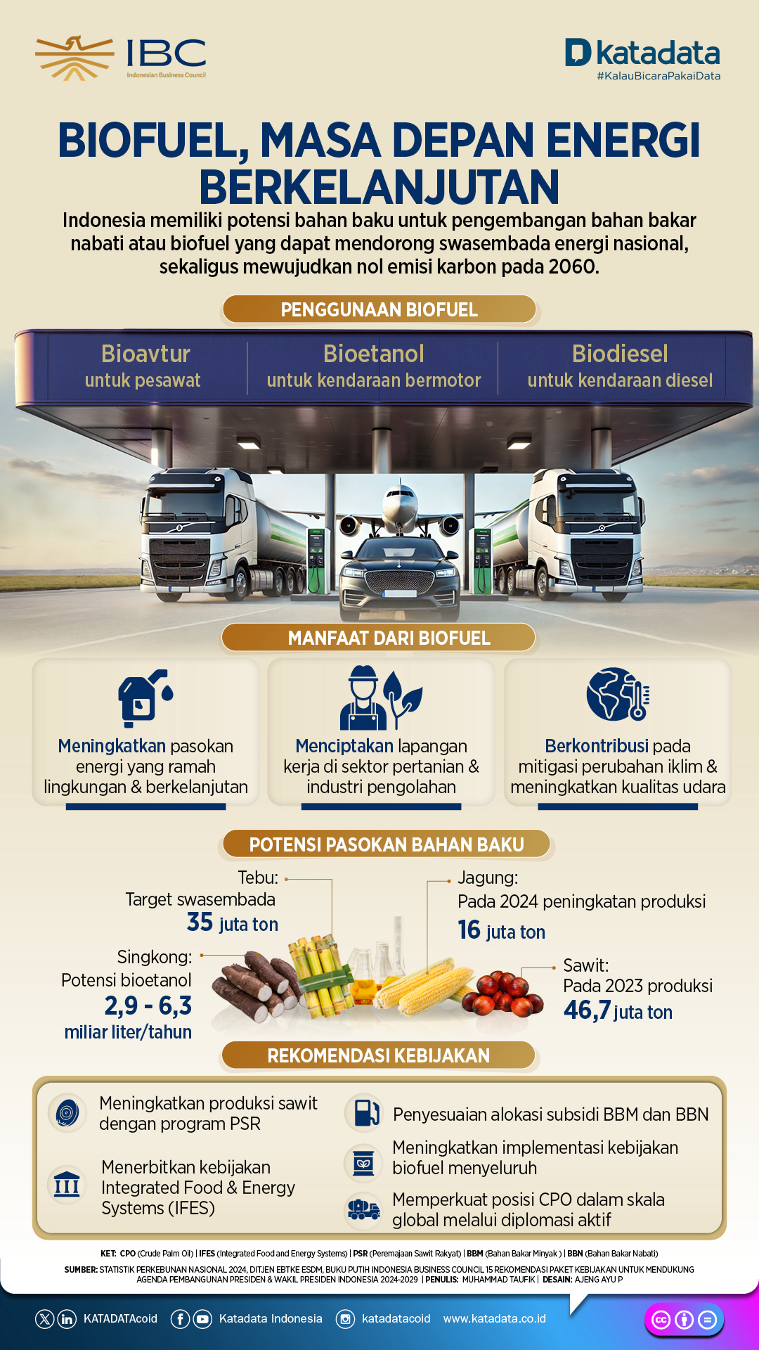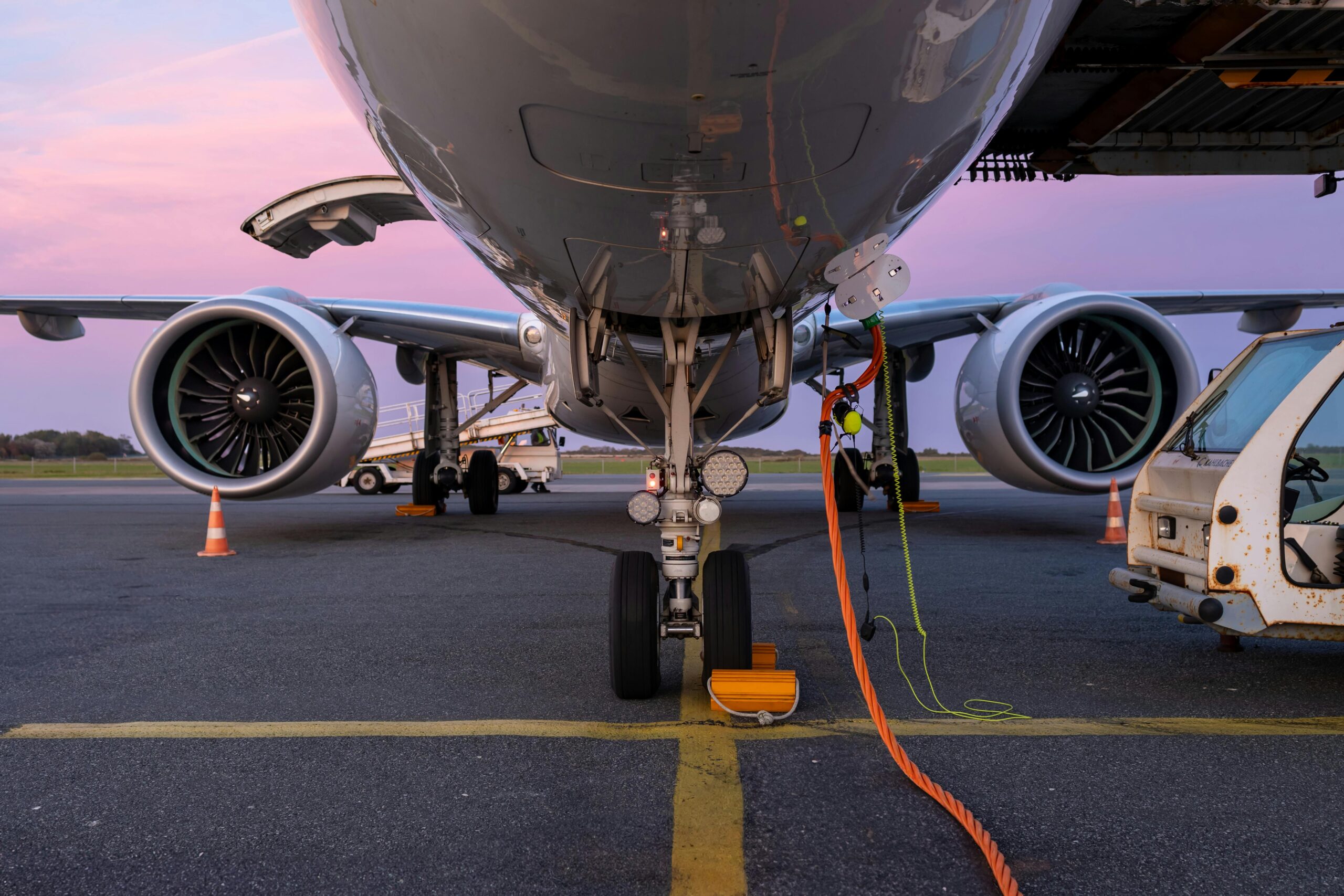Author:
Muhammad Taufik, Katadata Publication Team
11 September 2024
This article was originally published in KataData in September 2024

Currently, Indonesia has vast potential in developing biofuels, which can serve as a solution to achieving national energy self-sufficiency. It can also contribute to reaching Indonesia’s net-zero carbon emissions target by 2060.
Biofuel is a type of fuel produced from renewable raw materials using specific processes or technologies. These raw materials are derived from organic sources, both plant-based and animal-based, such as palm oil, corn, sugarcane, and cassava.
In Indonesia, biofuel utilization is divided into three main categories: bioavtur for aviation, bioethanol for gasoline engines, and biodiesel for diesel engines.
These potentials can be realized with the right and effective policy support. The Indonesia Business Council (IBC) has put forward several proposals, outlined in a white paper titled “15 Policy Recommendations to Support the Development Agenda of Indonesia’s President and Vice President 2024-2029.”
One of the recommendations focuses on increasing palm oil production through the Palm Oil Replanting Program (PSR). Additionally, there are steps to strengthen crude palm oil on a global scale through active diplomacy.
Furthermore, the implementation of biofuels must be accompanied by a balanced subsidy allocation between fossil fuels and biofuels. The increased use of bioavtur, bioethanol, and biodiesel requires a blend of various policies to accelerate Indonesia’s clean energy transition.
Another crucial step is to establish the Indonesian Food and Energy Sovereignty (IFES) policy, which aims to balance national food and energy needs. With the right policies and infrastructure, Indonesia can harness the potential of biofuels to achieve energy independence while ensuring environmental sustainability.


